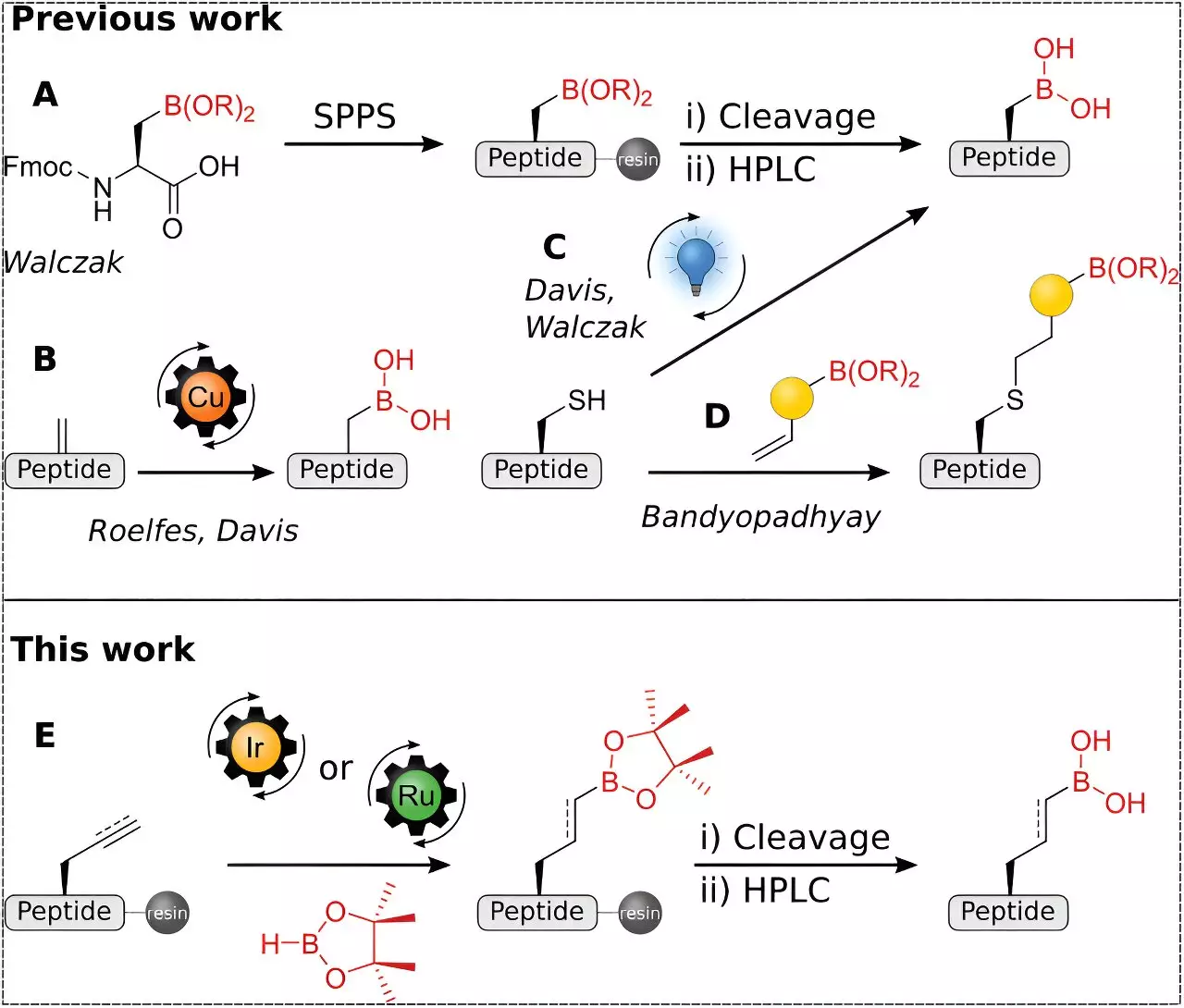In a significant advancement in the field of synthetic immunology, researchers from Heidelberg University have developed a groundbreaking method for rapidly producing modified peptides that incorporate boronic acids. This research, conducted by the Institute of Organic Chemistry and the Institute of Pharmacy and Molecular Biotechnology, marks a pivotal moment by allowing scientists to synthesize a diverse array of biologically active peptide boronic acids. This new method not only enhances our understanding of peptide chemistry but also opens exciting avenues for their potential application in immunotherapy.
Peptides, which are chains of two or more amino acids, are fundamental components in biological systems, playing crucial roles in cellular functions. Particularly in the immune system, peptides serve as vital immune markers, enabling the body to distinguish between self and foreign entities. The specific arrangements and chemical compositions of these peptides are responsible for eliciting various immune responses. This is why they have been extensively studied for therapeutic vaccinations and prophylactic treatments. As explained by doctoral researcher Marius Werner, understanding and modifying these peptides is vital for enhancing immune responses.
The intrigue surrounding boronic acids lies in their unique interaction properties with immune cells and other biological structures, which have yet to be fully explored. Researchers are eager to examine how these interactions can be manipulated for therapeutic benefits. The current study, published in Advanced Science, utilized a novel method of introducing boronic acids into peptides by hydroborating peptide alkenes and alkynes that were bound to a resin. This methodology enabled the creation of structurally distinct peptides that were previously challenging to synthesize, thus broadening the horizon of potential immunotherapeutics.
Enhancing Therapeutic Possibilities
Junior Professor Dr. Franziska Thomas, who led the research alongside Prof. Dr. Christian Klein, emphasized the simplicity that boronic acids bring to peptide modifications. This accessibility potentially allows for myriad variations, thereby enhancing the functional scope of these peptides. Their research suggests that by leveraging the ability of boronic acids to bind to immune cells, modified peptides could be employed to modulate immune responses, such as targeting specific tumor cells to harness the body’s own defenses in cancer therapy.
Targeted Delivery Mechanisms
One of the most promising applications of these peptide boronic acids lies in their ability to serve as targeted delivery systems within the body. The boronic acid moiety acts as an anchor, facilitating the binding of peptides to nanoparticles designed to transport these therapeutic agents. This innovative strategy could enable the peptides to reach specific organs or immune cells, thereby enhancing their efficacy. As highlighted by Prof. Klein, this targeted design not only maximizes the therapeutic potential of the peptides but also offers a controlled release mechanism tailored to the body’s requirements.
Peptide boronic acids extend their potential beyond merely immunotherapy. They could be integrated into small, bio-absorbable implants that provide a steady release of therapeutic agents over time. This dual-action approach could redefine treatment protocols, particularly in managing chronic ailments or localized diseases by offering sustained therapeutic effects with reduced side effects.
The work being done at Heidelberg University represents a crucial step forward in synthetic immunology, with the creation of peptide boronic acids paving the way for novel therapeutic strategies. As researchers continue to investigate and refine these compounds, we stand on the brink of a new era in immunotherapy. The potential for these innovations to enhance immune responses and improve patient outcomes is tremendous, signaling a transformative impact on modern medicine. The future of peptide research, fueled by the unique properties of boronic acids, is indeed bright, and the journey has only just begun.

